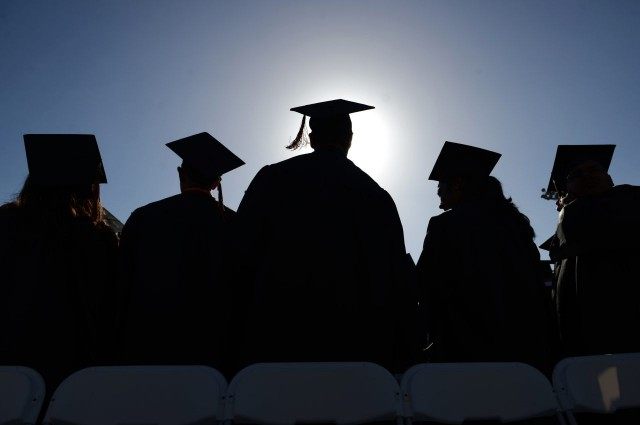In what critics are calling a radical move, President Obama’s National Labor Relations Board (NLRB) has reversed a past board ruling and is now maintaining that college graduate students can unionize and force private colleges to bow to new workplace demands.
In the past, the NLRB has held that student athletes or grad students who do work for universities are students first as opposed to employees who might be eligible for employee-styled benefits. the NLRB maintained in the past that such people were students first and employees only secondarily, or incidentally. But now, Obama’s regulatory board has reversed its stance, at least where graduate students at private colleges are concerned.
In its August 23 ruling, the NLRB said student assistants working at private colleges and universities are statutory employees covered by the National Labor Relations Act. Reversing its own 2004 ruling, the NLRB now insists that not allowing students to unionize, “deprived an entire category of workers of the protections of the Act without a convincing justification.”
The decision will now allow grad students who work for universities as teacher’s assistants, research assistants, or fulfill duties for research grants and third party programs, to organize and demand concessions from universities. But education reform advocates say the new rules will make it harder to reform the system and naturally lead to higher costs for universities already groaning under out of control spending.
One-time college president and now U.S. Sen. Ben Sasse (R-NE) said in a statement that the ruling was at best a “misguided” one. Sasse said on Tuesday:
This misguided, politically-driven decision re-writes the law by changing the meaning of words that were passed by Congress. That’s not the NLRB’s job. The ruling misunderstands both the nature of representative government and the teacher-student relationship: labor laws should be debated by the American people’s representatives in Congress and educators should put students ahead of politics. This adds another layer of complexity to the challenge of reforming higher education.
The activist group America Rising agreed with the Senator that the ruling was a radical one meant to make the economic sector “subservient to radical big labor bosses.” The organization said in a statement:
This is an extreme position that threatens private educational institutions across the country and only grows big labor’s radical movement for political clout. Today’s ruling threatens the authority that experienced educators previously made involving undergraduate students and teaching assistants, taking freedom away from faculty and giving it to the students they are instructed to teach.
Only a year ago, the same regulatory board denied a bid by college athletes to unionize and hence to be treated like professional athletes. This new ruling seems to fly in the face of last year’s position on student athletes and could be seen as leaving the door open to allowing unions for student athletes.
Follow Warner Todd Huston on Twitter @warnerthuston or email the author at igcolonel@hotmail.com.

COMMENTS
Please let us know if you're having issues with commenting.